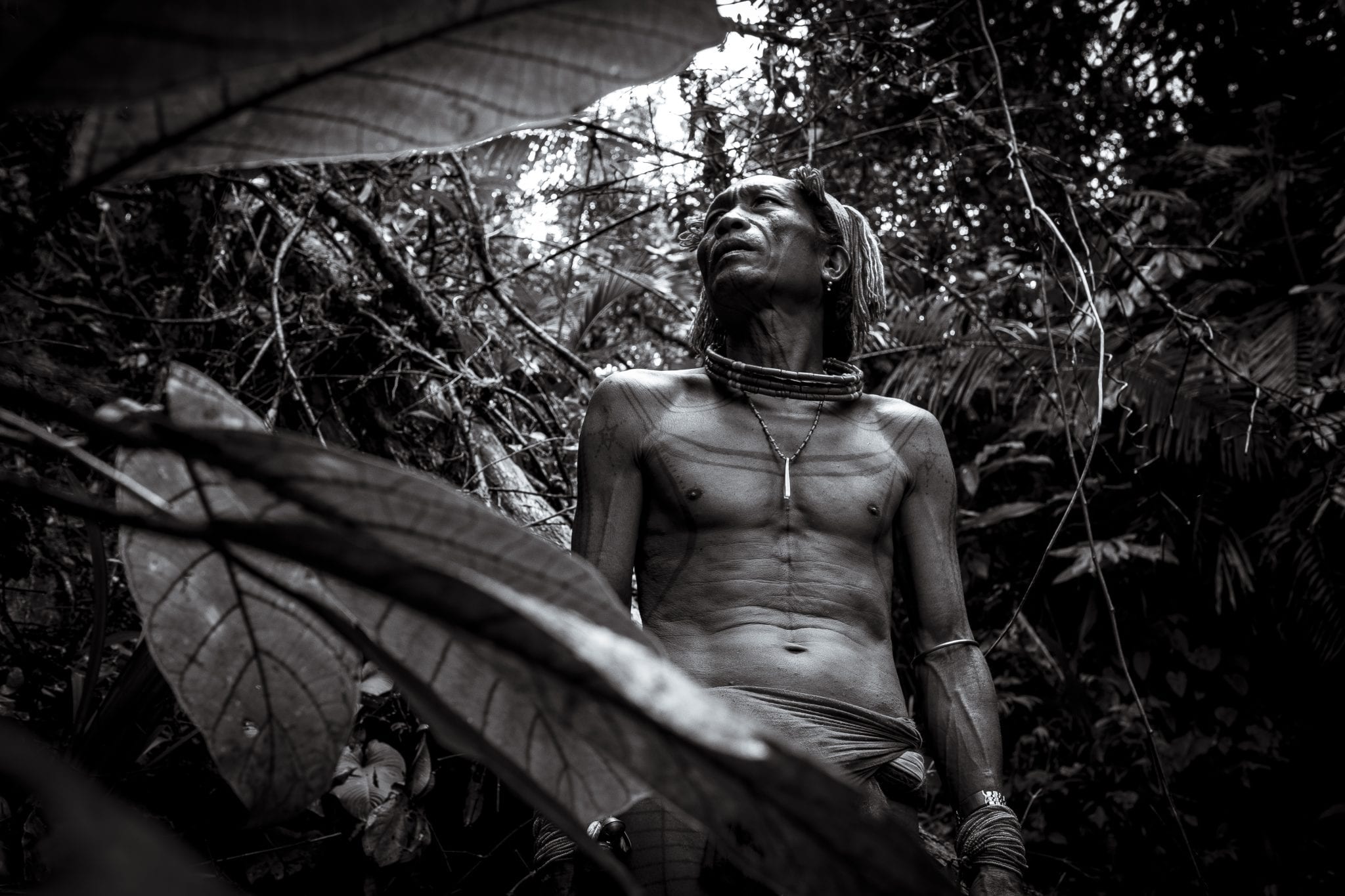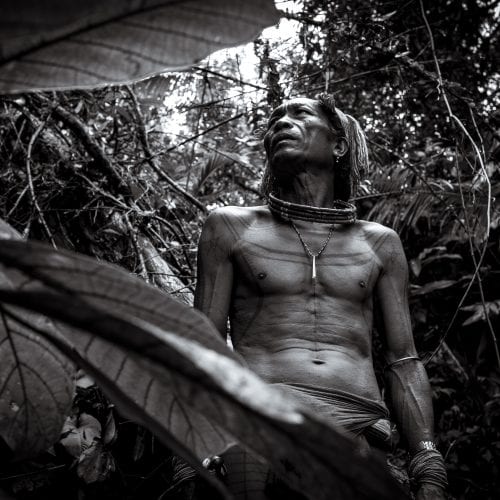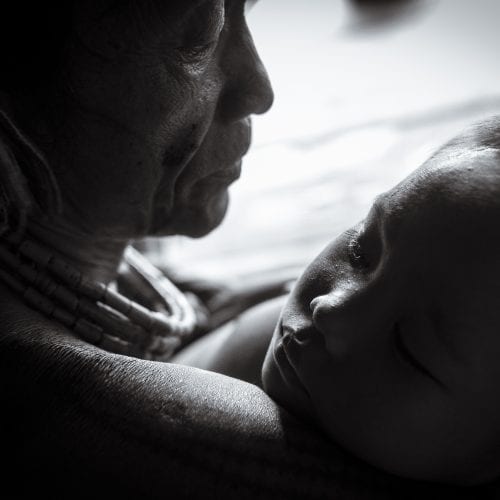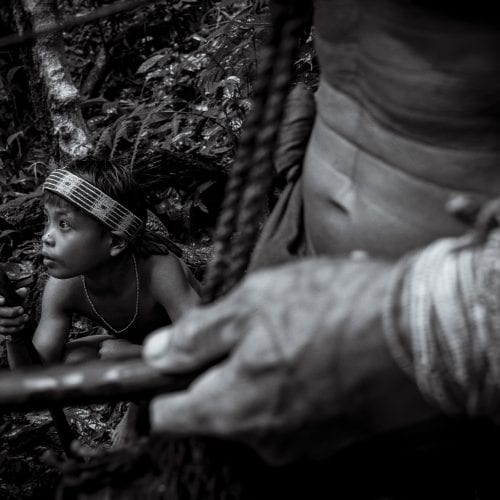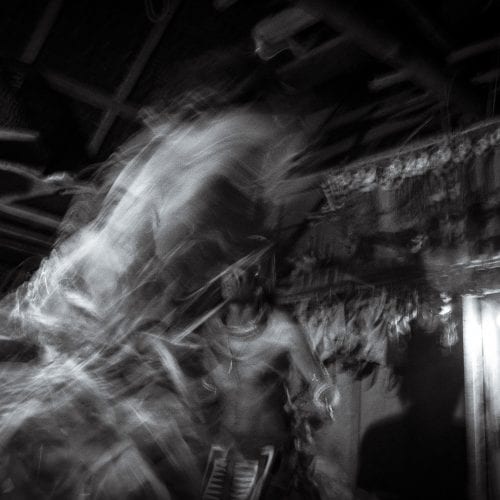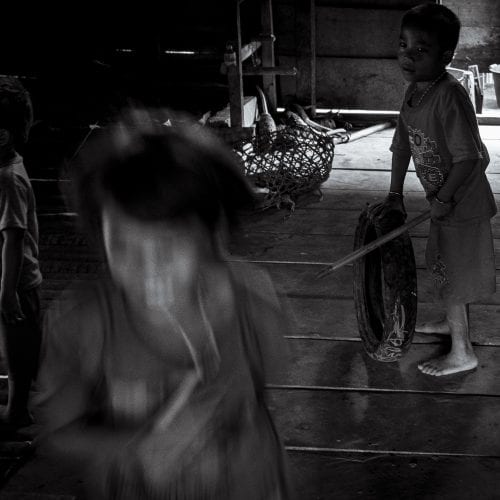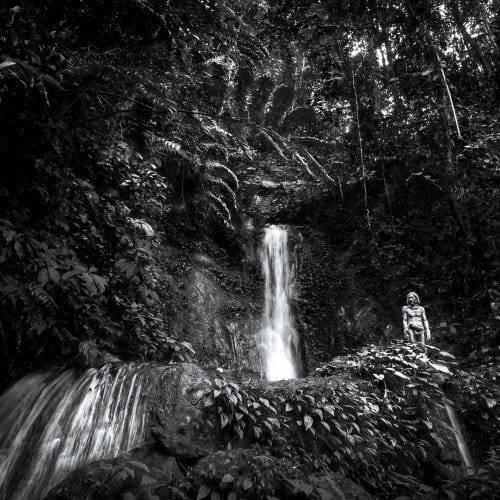2nd runner up – Chris Hopkins
Mentawai community (Indonesia)
‘The Mentawai of Indonesia are one of the world’s last remaining hunter-gatherer tribes, however, globalisation and deforestation is threatening to destroy their peaceful and subsistent way of life. Their culture and knowledge of the surrounding natural ecosystems is now on the verge of disappearing forever. For more information on how to assist in the cultural education program to save the Mentawai please visit www.iefprograms.org/wafsac ‘
2nd Runner up: Chris Hopkins (Australis) Siberut Island, Mentawai, Indonesia. Aman Masit Dere, is a medicine man or Sikerei of the indigenous tribal community that inhabit the inland jungles and mountains of the Mentawai islands west of Sumatra, Indonesia.His leathery skin is covered in tattoos and his lean muscular physique is emblematic of an uncompromising jungle life. Until now he has managed to reject modern influence and instead continuesto capitalize on an in-depth knowledge of the jungles foods, medicines and building resources, but the Mentawai existence is at the mercy of significant cultural, behavioral and ideological change. A change, brought about by the gradual introduction and influence of foreign practice that, evidently, is having an adverse effect; resultingin a significant decline in health, wellbeing and livelihood across the wider community.Photograph by Chris Hopkins © Chris Hopkins 2017
Aman Masit Dere soothes his youngest daughter Renti (1) from an unknown illness with a beautiful lullaby. The Sikerei hold the spirit of the child in reverence. They themselves are impish and childlike in many of their mannerisms. A cloud of worry envelops the Uma (house) when children become ill as there is no immediate access to modern medicine and they often pass away suddenly. Photograph by Chris Hopkins © Chris Hopkins 2017
Like his grandfather, nine year old Jumer possess’ an inner light, a connection to the land and forest, the knowledge that this is his place. When asked if he would like to go to school with the others Jumer doesn’t hesitate: “No”. Like those before him, he learns all he can and all the Mentawai have ever needed to know – until now – from observing his elders and listening to the lessons of the Sikerei. Photograph by Chris Hopkins © Chris Hopkins 2017
Masit Dere and his fellow Sikerei perform a traditional dance welcoming the spirits into the Uma at a ceremony to bless his newly made canoe or ‘pompong’. Ceremonies like this are becoming a rarity within the islands as traditional ways are rapidly being lost to an influx of western influences. Ceremonies sometimes last for days and will involve many families from the local area joining in the practices of hunting and preparing food and will culminate in the sacrifice of a pig and chicken, which are then shared evenly among the guests. Photograph by Chris Hopkins © Chris Hopkins 2017
A healthy Renti (l) stares outside the Uma as Ukan and Pandin play after school. As Masit Dere’s youngest son, Pandin (r) is the next in line to be Sikerei due to Kacau’s (Masit Dere’s eldest son) move to Matatonan. Pandin does not share the same love of Arat Sabulangan as Jumer does and as he attends the village school it would seem that Masit Dere is the last in his lineage to be Sikerei. “The future of Mentawai culture survives with our children and our role is to teach them this knowledge.” says Masit Dere. Photograph by Chris Hopkins © Chris Hopkins 2017
Mentawai tribesman and Sikerei (Shaman) Amun Masit Dere stands amid the tropical rainforest deep in the Sarereiket regions of Siberut Island. Photograph by Chris Hopkins © Chris Hopkins 2017
Related
